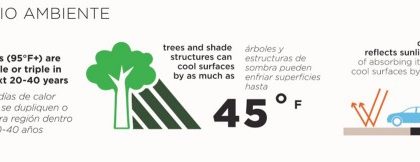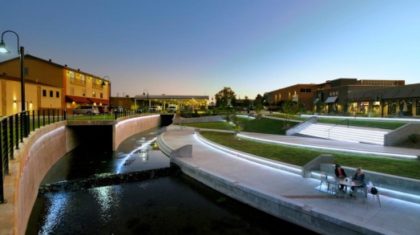#WalkBikeForward: Join us on our journey honoring key moments and people that have shaped our field as we celebrate 20 years of creating active, healthy communities.

Michael Jones is the founder of Alta Planning + Design.
The Birth of Alta
Nothing starts from scratch. The active communities movement came out of the 1970s bike resurgence, which in turn was related to 1973 Oil Crisis and birth of the environmental movement.
In 1985, I was in planning school at George Washington University in DC, and worked on a trail master plan for Annapolis, Maryland (‘Parks & Paths for People’). I was picked to do the work as the ‘California Kid’ and also really enjoyed doing it — but I never dreamed it would turn into a career. In 1991, ISTEA was passed by Congress and pretty soon contracts were coming through for bike and trail plans.
My expertise grew from this period and Alta, in turn, evolved out of that opportunity. Some people said the bike ‘craze’ wouldn’t last, but I was seeing all these people from everywhere coming out to bike conferences and workshops in a neighborhood where 50 people would show up. Public officials took notice of that. A lot of Americans had traveled to Europe by then, and it gave them aspirations of what cities could be. It wasn’t just about the bikes. Bikes were a symbol of something else — health, community, a simpler less expensive lifestyle. In other words, if you saw a lot of bikes in a community you knew it was a healthy community in many ways.
When I started Alta 20 years ago, there was no company specializing in active transportation in the country. It was a major risk. Now we have 200 employees — that would have seemed inconceivable at the time.
It was 1999 when I realized how big this could get. The federal government had a plan to put an active trail along a working railroad line in San Diego. It was a big contract, so I teamed up with what is now our major competitor and others to do it. After winning that project, I immediately hired Mia Birk to work on the project, who had just left as the Bicycle Program Manager for the City of Portland. Those were both transformative.
Bikesharing Comes to America
Another big breakthrough was bike sharing. We started on that in 2008 as a consultant on the Nice Ride bike share program in Minneapolis. Then the next year we answered an RFP to run a small bike share program in Arlington, Virginia that ultimately turned into the Capital Bike Share program across the DC region. Within in a year we were working in Boston, Chicago, San Francisco and Melbourne, Australia. And did I mention New York City? We’re really proud to have been part of all that — we still do bike share planning, but not the operations. We sold that company to a New York City group who continue to operate to this day as Motivate.
You can’t ignore the role of Portland and Mia Birk and George Hudson in the success of Alta. Portland has really been the poster child for a bikeable community. While we remain a California company and about half our work is in that state, having Portland as our headquarters added a lot of credibility and access to lots of smart young people for our staff.
Cities of the Future
When I think about the future of active communities, I look to Europe, which is 25–30 years ahead of us. In 20 years, American cities will look much more like European cities today. We won’t quite be Amsterdam, but cars won’t be used a lot in the center of the city. They will be something you use to get out into the country or to take a big shopping trip where you need to carry many bags. People today want to be around people, not cars. They want to be out in public, sitting in cafes and just hanging out.
As a leader in the bike sharing business, we also have a good view on the potential impact of the sharing economy on bicycling and driving. Bike sharing alone has the potential to dramatically increase mode shift. Who would have ever thought people would love cycling around Manhattan! Technology also is poised to radically change the transportation field, including things like driverless cars improving bicycle and pedestrian safety.
I’m excited to see Alta be part of this momentous shift in the transportation world.


